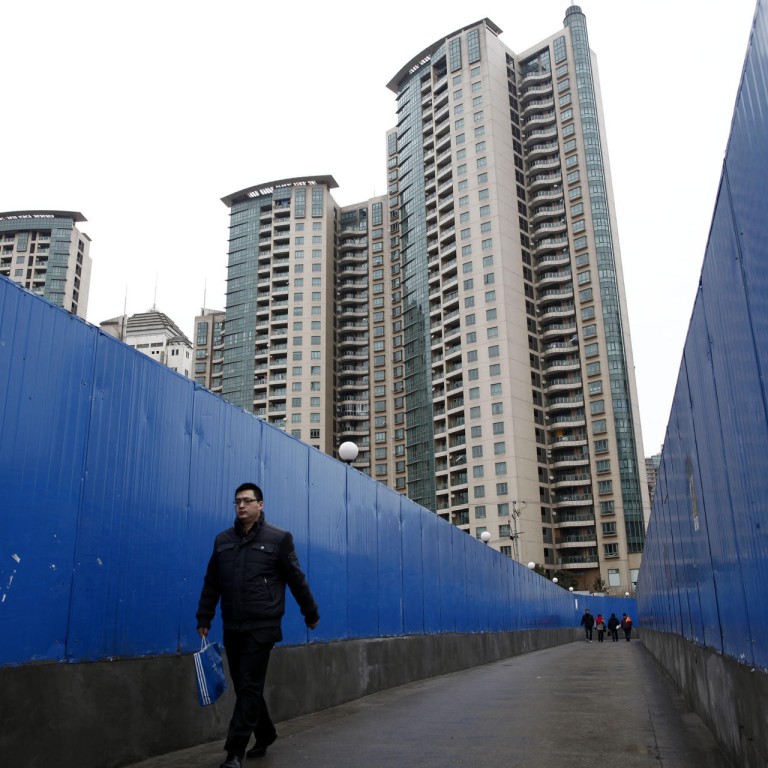
Investors foil government cooling measures
Slumping equities make buying homes a good bet despite Beijing's attempts to dampen market
Matthew Zhou and his wife spent 1.6 million yuan (HK$2 million) to buy a two-bedroom flat in Shanghai last month after seeing no potential for long-term returns in the financial markets.
"Home prices keep rising, so I'd rather buy a place now than put the money in the stock market," said Zhou, a 30-year-old information-technology engineer at a bank who plans to leave the home empty while he and his wife live with her parents.
Gains in equities "could never outpace the growth of home prices", he said.
The willingness of people like Zhou to shun other investments in favour of property shows why residential prices have defied a more than three-year-long government campaign to rein them in, and is among the forces crippling efforts by the central government to deal with an expanding housing bubble.
New home prices in major cities, including Beijing and Shanghai, rose more than 10 per cent in July from a year earlier, compared with a more than 10 per cent drop in the stock market during that period.
China has come to a stage where it couldn’t just let home prices rise rapidly
"Prices have been rising because China doesn't have developed financial markets," said Yao Wei, an economist at Societe Generale in Hong Kong. "Now, with the economy slowing, that has worsened as other investments don't yield good returns compared with property."
A stock market that has been stagnant for almost five years, a bond market in its infancy and bank-deposit rates barely above inflation have fostered a lack of confidence in other investment options.
Premier Li Keqiang has come up with no new measures to rein in property prices since assuming the post in March, underscoring the role real estate plays in the world's fastest-growing major economy.
Property, construction and related industries account for about 20 per cent of gross domestic product, according to Societe Generale.
"The government is not willing to announce property policies before it can find a good solution, as property accounts for a very big part of China's economy," said Ding Shuang, an economist at Citigroup in Hong Kong. "China has come to a stage where it couldn't afford to just let home prices rise rapidly, but economic growth and property curbs are trade-offs."
Real estate has attracted "the lion's share" of household investment on the mainland, according to Hong Kong-based Standard Chartered analysts Dorris Chen and David Yin. It has made up more than 60 per cent of household assets since 2008, they said in a July report.
That compared with 48 per cent in Britain, 32 per cent in Japan and 26 per cent in the United States.
Standard Chartered estimated the value of the mainland's urban residential property market was 115 trillion yuan as of the end of last year, dwarfing the 23 trillion yuan for the stock market and 26 trillion yuan for the bond market.
